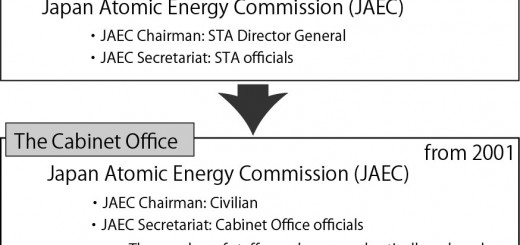CNIC Statement on the Government’s Fifth Basic Energy Plan: The Ministry of Economy, Trade and Industry should face up to harsh realities
Although the plan calls for a reduction of Japan’s dependence on nuclear power, it insists that the percentage of nuclear power in the 2030 energy mix should be maintained at the 20-22% level. To achieve this, 30 domestic nuclear reactors would need to be operated, according to METI. Seven years have already passed since the nuclear disaster occurred at Fukushima Daiichi Nuclear Power Station in 2011. Nevertheless, only nine reactors are currently operating, of which the Shikoku Electric Power Co.’s Ikata nuclear plant in Ehime Prefecture, is temporarily halted due to a court injuction. The total number of existing, operable nuclear reactors, therefore, will become 35 after the Fukushima Daini nuclear plant is decommissioned. Meanwhile, three new reactors are now under construction. This means that almost all of these nuclear reactors would need to become operational to achieve the 20-22% target. But the operators of ten of the reactors (excluding the four reactors at the Fukushima Daini plant) have yet to apply for clearance from the Nuclear Regulation Authority under the new regulations enforced in July 2013. Under these circumstances, the chances of achieving the government’s 20-22% target are extremely slim.
The plan asserts that the cost of nuclear power generation is lower than that of other energy sources. Nevertheless, if we calculate the 2017 nuclear power generation cost using METI’s calculation method, adopted by the ministry in 2015, the result is 10.82-16.38 yen/kWh, much higher than the 10.1 yen/kWh for 2014.
Meanwhile the cost of liquified natural gas has declined from 13.72 yen/kWh to 9.17 yen/kWh under the influence of the shale-gas revolution. As for renewable sources of power, the cost of wind power generation for 2030 is estimated at 8-9 yen, and that of solar power generation, around 7 yen. These data indicate that nuclear power generation is no longer a low-cost power source.
The basic plan calls for promotion of reprocessing of used nuclear fuel and the plutonium-thermal project, and at the same time seeks a reduction in Japan’s plutonium stockpiles. This sounds as though the plan has come out with a new proposal, but the reality is that it has simply reiterated its traditional policy of promoting the thermal use of plutonium.
Although Japan originally planned to have 16 to 18 reactors using pluthermal fuel by fiscal 2015, only four are currently doing so. As a result, Japan’s plutonium stockpiles have continued to increase and have now reached 46.9 tons. IAEA’s calculation shows that one nuclear warhead requires an average of 8 kg of plutonium, which means Japan’s 46.9 tons of stockpiled plutonium is sufficient to produce 6000 nuclear warheads.
Indications are that plutonium has been transformed from a precious natural resource to a useless substance. Japan’s plutonium stockpiles may also negatively affect the on-going negotiations for denuclearization of the Korean Peninsula. Given this situation, it is totally meaningless for Japan to continue to reprocess spent nuclear fuel.

